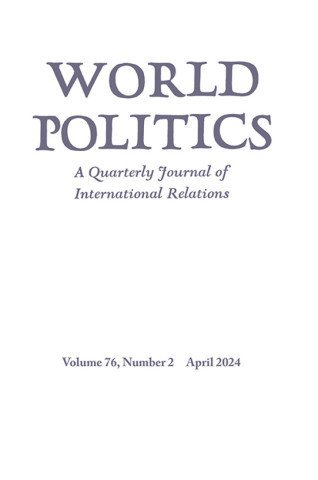The Place of Proxy Groups in the Foreign Policy Strategy of the Islamic Republic of Iran
IF 2.5
1区 社会学
Q1 INTERNATIONAL RELATIONS
引用次数: 0
Abstract
The use of proxy groups and intermediary wars is rooted in the superpower competition during the Cold War. Since the collapse of the bipolar system, the main actors in West Asia have increasingly used these groups as a key factor in redefining the Middle East's regional order rather than direct military intervention to achieve national goals. The main question raised in this study is "what is the reason for the I. R. Iran's attention to proxy groups in the Middle East after the collapse of the bipolar international system and what role do these groups play in Iran's national security strategy?" In response should be stated that the place of proxy groups in Iranian foreign policy strategy has been to institutionalize some sort of balance against US threats in the peripheral areas. In other words, Iran's support for these aligned groups in the region is not aimed at exporting revolution, supporting liberation movements, and forming a Shiite crescent; rather, according to a strategic logic, it is a kind of asymmetric battle to defend the Islamic Republic's existence against American plots in West Asia. Although, Iran has attempted to use this capacity to shape a regional order based on its revolutionary-Islamic ideas for some time. Theoretical framework of research is "Neoclassical realism and the balance of threat theory", the research method is descriptive-analytical and data collection tool is library and documentary.代理团体在伊朗伊斯兰共和国外交政策战略中的地位
代理人团体和中介战争的使用植根于冷战时期的超级大国竞争。自两极体系崩溃以来,西亚的主要行为者越来越多地将这些群体作为重新定义中东地区秩序的关键因素,而不是为了实现国家目标而进行直接军事干预。这项研究提出的主要问题是“是什么原因导致了I.R。两极国际体系崩溃后,伊朗对中东代理团体的关注,以及这些团体在伊朗的国家安全战略中扮演什么角色?“作为回应,应该指出的是,代理团体在伊朗外交政策战略中的地位是将对抗美国在周边地区威胁的某种平衡制度化。换言之,伊朗对该地区这些结盟团体的支持并不是为了输出革命、支持解放运动和形成什叶派新月形;相反,根据一份战略日志ic,这是一种不对称的战斗,以捍卫伊斯兰共和国的存在,对抗美国在西亚的阴谋。尽管如此,一段时间以来,伊朗一直试图利用这种能力来建立一个基于其革命伊斯兰思想的地区秩序。研究的理论框架是“新古典现实主义与威胁平衡理论”,研究方法是描述性分析,数据收集工具是图书馆和文献。
本文章由计算机程序翻译,如有差异,请以英文原文为准。
求助全文
约1分钟内获得全文
求助全文
来源期刊

World Politics
Multiple-
CiteScore
8.40
自引率
0.00%
发文量
24
期刊介绍:
World Politics, founded in 1948, is an internationally renowned quarterly journal of political science published in both print and online versions. Open to contributions by scholars, World Politics invites submission of research articles that make theoretical and empirical contributions to the literature, review articles, and research notes bearing on problems in international relations and comparative politics. The journal does not publish articles on current affairs, policy pieces, or narratives of a journalistic nature. Articles submitted for consideration are unsolicited, except for review articles, which are usually commissioned. Published for the Princeton Institute for International and Regional Affairs
 求助内容:
求助内容: 应助结果提醒方式:
应助结果提醒方式:


